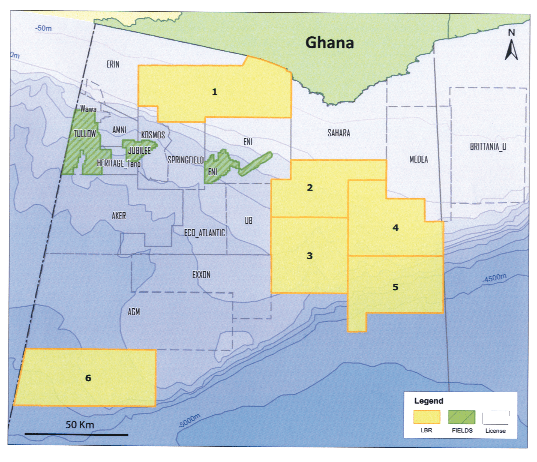He, therefore, urged oil companies that currently had contracts that were docile to form partnerships with stronger companies to become vibrant and, by so doing, prevent an abrogation of such agreements.
The President, who expressed worry about the slow pace of exploration in the country’s existing oil fields, charged the Ministry of Energy to critically review existing operations in the industry, including petroleum agreements that were dormant, to determine oil fields that were sub-optimal.
“The Ministry of Energy will engage with the operators, after the review, on the adoption of best methods for increasing oil recovery rate. For petroleum agreements that are dormant, the ministry will encourage the operators to consider inviting stronger partners to join them or risk the termination of these petroleum agreements should they persist in failing to meet their minimum work obligations,” President Akufo-Addo stated.
Slow pace
While indicating that the last oil discovery and the last exploration well drilled were in 2014, he said that meant the pace of oil exploration had slowed down considerably in the country.
“Given that production is taking place at a faster rate than reserves are being added, we need to reverse this state of affairs immediately, especially in today’s oil market environment where crude oil prices are in the $70–$80 per barrel range,” he said.
“With the resolution of the maritime boundary dispute with Cote d’Ivoire and the prevailing transparent regime for allocating petroleum rights, many opportunities now exist for Ghana to reverse the slow pace of oil exploration,” President Akufo-Addo noted.

Licensing round
The oil and gas licensing, which is a bidding process for the country’s oil blocks, is to ensure transparency and increase revenue from the petroleum sector, among other things.
It is also expected to attract the best companies in the oil prospecting business around the world to improve standards and create more avenues for employment.
Free SHS
The President described the launch of competitive bidding for six blocks in the Western Region as a significant milestone in the oil and gas industry.
“The rapid growth of the Ghanaian economy is in the creation of jobs, among others. It is, therefore, incumbent on us to ensure that things are done right in our petroleum industry if people decide to invest in our petroleum industry.
“We are using our oil revenue to create assets and not on wasteful consumption and the accumulation of debt. That is why we invest revenue from oil in one of the most ambitious social programmes in our country’s history — the free senior high school policy,” he stated.
The President said in the 2018 budget, GH¢455.9 million of petroleum revenue was allocated to the free SHS programme.
“Free SHS is ensuring that our oil revenues are being equitably distributed to our people and not ending up in the pockets of a few. The most important resource of any nation is its people and investing in our children and in the future of our country is the most appropriate investment any government can make and we are fully committed to continuing on this path,” he stressed.
Local participation
The Minister of Energy, Mr John-Peter Amewu, said the low participation of Ghanaian companies in the oil sector had exposed the weakness in the strategy being used, which was why urgent steps such as the licensing round were being adopted to change the course.
He said the ministry had finalised a blueprint and road map to accelerate upstream activity, “with the view to attracting competent companies and increasing our potential for scaling up oil and gas production in the country”.
Overview
Presenting an overview of the licensing rounds, the Chief Director of the Ministry of Energy, Mr Lawrence Apalse, said its purpose was to increase the government’s take, introduce predictability and certainty in the awarding of blocks and promote confidence in investments to the international community.
He said blocks numbered two, three and four were what would be bided for, while blocks five and six were in deep waters and block one would be reserved for the Ghana National Petroleum Corporation (GNPC).
Mr Apalse said the Western Region was selected for the first bidding of blocks which had well-defined boundaries because the region had a steady basin and an analysed petroleum system, which meant that it was de-risked to bolster investor confidence.
 info@businessghana.com
info@businessghana.com

















